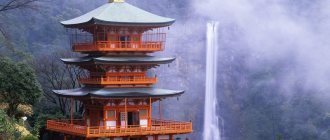Housing
To highlight a damaged or non-functioning object, use ________ ga kowarete imasu.
To highlight the missing element, use ________ ga arimasen.
- Bed : Beddo (ベッド).
- Blanket : Buranketto (ブランケット) or moufu (毛布).
- Ceiling : Tenjou (天井).
- Chair: Isu (椅子).
- Check-in/Check-out : Chiekkuin (チェックイン) and chiekkuauto (チェックアウト).
- Courier: Takuhaibin (宅配便).
- Door: Doa (ドア).
- Bedroom: Ryou (寮). Please note that this word can also mean hostel.
- Floor: Furoa (フロア). The traditional Japanese word for gender is yuka (床). However, since this word also means several other things, it is best not to use it in a hotel.
- Refrigerator : Reizouko (冷蔵庫).
- Hostel: Hosuteru (ホステル).
- Hot spring : Onsen (温泉).
- Hot water : Oyu (お湯).
- Hotel : Hoteru (ホテル).
- Internet : Intaneto (インターネット). WiFi is pronounced as it is.
- Iron : Airon (アイロン).
- Traditional Japanese Inn : Ryokan (旅館).
- Teapot : Ketoru (ケトル).
- Laundromat ( Public laundry, coin operated): Koin randori (コインランドリー).
- Laundry service : Randori (ランドリ).
- Lighting: Raito (ライト).
- Luggage : Nimotsu (荷物). Smaller items could be referred to as tenimotsu (手荷物).
- Microwave : Denshi renji (電子レンジ).
- Pillow: Makura (枕).
- Public Bath (Hotel) : Yokujo (浴場). Please note that this actually means "bathing area" and refers to regular hotel bathing areas.
- Reception: Furonto (フロント). In other establishments, receptionists are also known as uketsuke (受付).
- Room : Heya (部屋).
- Room service : Rumu sabisu (ルームサービス).
- Shower: Shiyawa (シャワー).
- Shell : Sinku (シンク).
- Table : Teburu (テーブル).
- Television : Terebi (テレビ).
- Traditional Japanese bed : Futon (布団). This is the kind that unfolds on the tatami floor.
- Vending machine : Jidou hanbaiki (自動販売機).
- Window: Mado (まど).
As you can see, many Japanese travel phrases and words used in the hospitality industry are transliterations of English. Traditional Japanese terms and names are generally avoided.
Top 5 Places to See the Sunset in Japan
In a cafe, restaurant
| Phrase in Russian | Translation | Pronunciation |
| Waiter! | Chotto, sumimasen | |
| Menu, please | Menu: kudasai | |
| What would you recommend? | O susume wa nandeska? | |
| How do you eat this? | Kore o do: yatte tabemaska? | |
| ...please (order) | ...oh kudasai | |
| Thank you, everything was very tasty | Gochiso: Dashita sama | |
| food | tabemono | |
| drink | nomimono | |
| japanese food | vashcheku | |
| western dishes | e: cheek | |
| beef | gyu: nick | |
| pork | butanica | |
| chicken | torinika | |
| fish | sakana | |
| potato | pote: then | |
| rice | gohan | |
| bread | pan | |
| salad | sarada | |
| soup | su: pu | |
| vegetables | yasai | |
| fruits | kudamono | |
| dessert | Deza: then | |
| salt | shio | |
| sugar | sato | |
| pepper | pe: pa | |
| soy sauce | cheek | |
| coffee (hot) | hotto ko: hee | |
| iced coffee) | aisu ko: hee | |
| Black tea | ko: cha | |
| green tea | o: cha | |
| mineral water | mineraru uo: ta | |
| cola | ko: ra | |
| juice | ju:su | |
| milk | gyu: nude | |
| whiskey | whiskey | |
| vodka | butt | |
| Red wine) | Akawain | |
| wine (white) | shirowaine | |
| rice wine | sake | |
| beer | bi:ru | |
| Let's have lunch together | Chu: shoku-o go-isshoni ikaga des ka? | |
| Let's have breakfast together | Cho: shoku-o go-isshoni ikaga des ka? | |
| Let's have dinner together | Yu: shoku-o go-isshoni ikaga des ka? | |
| I'm hungry. | watashi-wa o-naka-ga sukimashita | |
| What will you order? | Nani-ni itasimas ka? | |
| Please give me a vegetable salad. | yasai-sarada-o o-negai shimas | |
| Give me some soup (broth), please. | su:pu-o (consome-o) kudasai | |
| Please bring chicken with potatoes (with rice). | tikin-ni pote-to (raisu-no) moriawase-o tsukete o-negai shimas | |
| Give me the bill, please. | kanjo:-o o-negai shimas | |
| I'd like some coffee and scrambled eggs, please. | kanjo:-o o-negai shimas | |
| I'll take tea with lemon and a sandwich. | Watashi-wa Remon-chi: to sandoitti-ni simas | |
| I'll have a beer. | bi:ru-o itadakimasho: | |
| Thank you, I don't drink. | do:mo arigato, watakushi-wa nomasen | |
| fork | fo-ku | |
| spoon/teaspoon | supu:n/cha-supu:n | |
| knife | naif | |
| plate | Sarah | |
| it was very tasty (similar to 'thank you') | gotiso: deshita sama |
Attractions
- Amusement Park : Yuenchi (遊園地). Theme parks are called tema paku (テーマパーク).
- Art gallery : Bijitsukan (美術館).
- Beach: Hamabe (浜辺). Note that kaigan (海岸) is sometimes translated as “beach” too, but actually means seaside/coast.
- Bridge: Hashi (橋). When combined with other words it is pronounced bashi.
- Castle: Castle . This is not an easy question. When combined with other Japanese words or names, it is pronounced jou (城). However, the word itself is pronounced shiro. Kanji doesn't change.
- Castle Fortress : Tenshukaku (天守閣).
- Downtown : Hankagai (繁華街).
- Garden : Niwa (庭). Note that many famous Japanese gardens use the kanji en (instead) instead.
- Market : Shijou (市場).
- Mountain: Yama (山).
- Museum: Hakubutsukan (博物館).
- Observation point: Tenboudai (展望台).
- Pagoda: Tou (塔).
- Palace: Goten (御殿).
- Park: Koen (公園).
- River: Kawa (川). When combined with other words, the pronunciation sometimes changes to gawa.
- River cruise : Kawa kudari (川下り).
- Ruins : Iseki (遺跡).
- Shopping street : Shoutengai (商店街).
- Stores : Mise (店)
- Shrine : Jinja (神社).
- Stadium : Sutajiamu (スタジアム).
- Statue: Zou (像)
- Temple. Temple : Again, this is a tough question. The kanji itself is pronounced tera (寺). When combined with other Japanese words, it sometimes becomes ji. In other cases, the pronunciation changes slightly to become dera. For example, Yamadera (山寺).
- Tower : Tawa (タワー). Tawa is used to refer to modern buildings, while Tawa (see above) refers to historical pagodas.
- City : Machi (町).
- Valley : Tani (谷).
Interesting fact: Some Japanese travel phrasebooks mistakenly include the names of places of interest in translations of popular attraction names. For example, Kiyomizudera Temple actually translates to "Kiyomizu Temple Temple".
AnimeTank
Do you call yourself an anime fan?
Don't understand anything in Japanese?
You don't have to speak, but you should know the most common Japanese phrases.
How to find out: you can watch anime more often, the phrases will become memorable.
And to consolidate the material, look at our small collection:
Meeting and farewell
This section describes popular expressions that Japanese people use when dating or saying goodbye.
Group with the meaning “Hello”
Ohayou gozaimasu - “Good morning.” Polite greeting. In youth communication it can also be used in the evening. Let me remind you that in most cases “u” after voiceless consonants is not pronounced, that is, this expression is usually pronounced as “Ohayo gozaimas”.
Ohayou - Informal option.
Ossu - A very informal men's option. Often pronounced "Oss".
Konnichiwa – “Good afternoon.” The usual greeting.
Konbanwa – “Good evening.” The usual greeting.
Hisashiburi desu - “Long time no see.” Standard polite option.
Hisashiburi ne? (Hisashiburi ne?) – Female version.
Hisashiburi da naa... (Hisashiburi da naa) - Male version.
Yahho! (Yahhoo) - “Hello.” Informal option.
Ooi! (Ooi) – “Hello.” A very informal men's option. A common greeting for roll call over long distances.
Yo! (Yo!) – “Hello.” An exclusively informal men's option.
Gokigenyou - “Hello.” A rare, very polite female greeting.
Moshi-moshi - “Hello.” Answer by phone. Group with the value “For now”
Sayonara – “Farewell.” The usual option. It is said that if the chances of a new meeting soon are small.
Saraba – “Bye.” Informal option.
Mata Ashita – “See you tomorrow.” The usual option.
Mata ne - Female version.
Mata naa - Male version.
Dzya, mata (Jaa, mata) - “See you again.” Informal option.
Dzya (Jaa) - A completely informal option.
De wa – A slightly more formal option.
Oyasumi nasai - “Good night.” A somewhat formal option.
Oyasumi - Informal option. "Yes and no"
This section describes popular expressions that are often found in the speech of Japanese people and anime and manga characters and express various versions of agreement and disagreement. Group with the value “Yes”
Hai – “Yes.” Universal standard expression. Can also mean “I understand” and “Continue”. That is, it does not necessarily mean consent.
Haa - “Yes, sir.” A very formal expression.
Ee (Ee) - “Yes.” Not very formal.
Ryoukai – “That’s right.” Military or paramilitary option. Group with value “No”
Ie (Ie) - “No.” Standard polite expression. Also a polite form of declining a thank you or compliment.
Nai – “No.” An indication of the absence or non-existence of something.
Betsu ni – “Nothing.” Group with the value “Of course”:
Naruhodo – “Of course”, “Of course”.
Mochiron – “Naturally!” An indication of confidence in a statement.
Yahari – “That’s what I thought.”
Yappari - A less formal form of the same. Group with the value “Maybe”
Maa... (Maa) - “Maybe...”
Saa... (Saa) - “Well...” In the sense of – “Perhaps, but doubts still remain.” Group with the meaning “Really?”
Honto desu ka? (Hontou desu ka?) – “Really?” Polite form.
Honto? (Hontou?) – Less formal form.
So what? (Sou ka?) - “Wow...” Sometimes pronounced as “Su ka!”
So desu ka? (Sou desu ka?) – Formal form of the same.
So desu nee... (Sou desu nee) - “This is how it is...” Formal version.
So da na... (Sou da naa) - Men's informal version.
So nee... (Sou nee) - Women's informal option.
Masaka! (Masaka) – “It can’t be!” Expressions of politeness
This section describes popular expressions of politeness that are often found in the speech of Japanese and anime and manga characters, but are not always clearly translated into Russian and other languages.
Group with the meaning “Please”
Onegai shimasu - A very polite form. Can be used independently. Especially often used in requests like “do something for me.” Let me remind you that in most cases “u” after voiceless consonants is not pronounced, that is, this expression is usually pronounced as “Onegai shimas”.
Onegai - Less polite, more common form.
- kudasai - Polite form. Added as a suffix to a verb. For example, “kite-kudasai” - “Please come.”
- kudasaimasen ka? (kudasaimasen ka) – More polite form. Added as a suffix to a verb. Translates to “could you do something for me?” For example, “kite-kudasaimasen ka?” - “Could you come?” Group with the meaning “Thank you”
Doumo - Short form, usually said in response to a small “household” help, say, in response to a coat being given and an invitation to enter.
Arigatou gozaimasu - Polite, somewhat formal form. Let me remind you that in most cases “u” after voiceless consonants is not pronounced, that is, this expression is usually pronounced as “Arigato gozaimas”.
Arigatou - Less formal polite form.
Doumo arigatou – “Thank you very much.” Polite form.
Doumo arigatou gozaimasu - “Thank you so much.” Very polite, formal uniform.
Katajikenai - Old-fashioned, very polite form.
Osewa ni narimashita - “I am your debtor.” Very polite and formal uniform.
Osewa ni natta - Informal form with the same meaning.
Group with the meaning “Please”
Do itashimashite - Polite, formal form.
Iie – “You’re welcome.” Informal form. Group with the meaning “Sorry”
Gomen nasai – “Please excuse me”, “I beg your pardon”, “I’m really sorry.” A very polite form. Expresses regret for some reason, say, if you have to disturb someone. Usually it is not actually an apology for a significant offense (unlike “sumimasen”).
Gomen - Informal form.
Sumimasen - “I beg your pardon.” Polite form. Expresses an apology related to the commission of a significant offense.
Sumanai/Suman - Not very polite, usually masculine form.
Sumanu - Not very polite, old-fashioned form.
Shitsurei shimasu - “I beg your pardon.” Very polite formal uniform. Used, say, to enter the boss's office.
Shitsurei – Similar, but less formal form
Moushiwake arimasen - “I have no forgiveness.” Very polite and formal uniform. Used in the military or business.
Moushiwake nai – Less formal option. Other expressions
Dozo (Douzo) - “Please.” A short form, an invitation to enter, take a coat, and so on. The usual answer is “Domo.”
Chotto... (Chotto) - “No need to worry.” Polite form of refusal. For example, if you are offered tea. Standard everyday phrases
This section contains everyday phrases that are often found in the speech of Japanese and anime and manga characters, but are not always clearly translated into Russian and other languages. Group “Departure and Return”
Itte kimasu - “I left, but I’ll be back.” Pronounced when leaving for work or school.
Chotto itte kuru - Less formal form. Usually means something like “I’ll go out for a minute.”
Itte irashai - “Come back quickly.”
Tadaima - “I'm back, I'm home.” Sometimes it is said outside the home. This phrase then means a “spiritual” return home.
Okaeri nasai – “Welcome home.” The usual response to “Tadaima.”
Okaeri is a less formal form.
Group “Food”
Itadakimasu - Said before eating. Literally – “I accept [this food].” Let me remind you that in most cases “u” after voiceless consonants is not pronounced, that is, this expression is usually pronounced as “Itadakimas”.
Gochisousama deshita - “Thank you, it was very tasty.” Pronounced at the end of a meal.
Gochisousama - Less formal form. Exclamations
This section contains various exclamations that are often found in the speech of Japanese and anime and manga characters, but are not always clearly translated into Russian and other languages.
Kawaii! (Kawaii) – “What a beauty!” Often used in relation to children, girls, very handsome guys. In general, this word has a strong meaning of “the appearance of weakness, femininity, passivity (in the sexual sense of the word).” According to the Japanese, the most “kawaii” creature is a fair-haired good girl of four or five years old with European features and blue eyes.
Sugoi! (Sugoi) – “Cool” or “Cool/cool!” In relation to people, it is used to denote “masculinity”.
Kakkoii! (Kakkoii!) – “Cool, beautiful, awesome!”
Suteki! (Suteki!) – “Cool, charming, wonderful!” Let me remind you that in most cases “u” after voiceless consonants is not pronounced, that is, this expression is usually pronounced as “Stacks!”
Forge! (Kowai) – “Scary!” Expression of fear.
Abunay! (Abunai) – “Danger!” or “Look out!”
Hide! (Hidoi!) - “Evil!”, “Evil, bad.”
Tasukete! (Tasukete) - “Help!”, “Help!” Let me remind you that in most cases “u” after voiceless consonants is not pronounced, that is, this expression is usually pronounced as “Taskete!”
Yamero!/Yamete! (Yamero/Yamete) – “Stop!”
Dame! (Dame) – “No, don’t do that!”
Hayaku! (Hayaku) – “Faster!”
Matte! (Matte) - “Wait!”
Yoshi! (Yoshi) - “So!”, “Come on!”. Usually pronounced as “Yos!”.
Ikuzo! (Ikuzo) – “Let’s go!”, “Forward!”
Itai!/Itee! (Itai/Itee) – “Oh!”, “It hurts!”
Atsui! (Atsui) – “Hot!”
Daijōbu! (Daijoubu) – “Everything is fine”, “Healthy”.
Kampai! (Kanpai) – “To the bottom!” Japanese toast.
Gambatte! (Ganbatte) - “Don’t give up!”, “Hold on!”, “Give your best!”, “Try to be honest!” The usual parting words at the beginning of difficult work.
Hanase! (Hanase) – “Let go!”
Hentai! (Hentai) – “Pervert!”
Urusai! (Urusai) – “Shut up!”
Uso! (Uso) – “Lies!”
Yokatta! (Yokatta!) – “Thank God!”, “What happiness!”
Yatta! (Yatta) - “It worked!”
Author Neko
3. Clothes
Best Street Style Tokyo Fashion 2019
This section does not include the names of parts of traditional Japanese clothing. To learn Japanese travel phrases and related words, refer to specific articles on the topic.
- Belt: Beruto (ベルト). This is different from the obi (帯), which refers to the waist belt used when wearing a kimono.
- Blouse: Burausu (ブラウス).
- Cap/hat: Boshi (帽子).
- Coat: Uwagi (上着). This could also mean a jacket.
- Dress: Doresu (ドレス).
- Shirt: Shatsu (シャツ). T-shatsu tees.
- Shoes: Kutsu (靴).
- Shorts: Pantsu (パンツ).
- Skirt: Skirto (スカート).
- Sleeve: Sode (袖). Hansode (半袖) and nagasode (長袖) are short and long sleeves respectively, while sodenashi (袖無し) means sleeveless.
- Socks: Kutsushita (靴下).
- Sweater: Seta (セーター).
- Pants: Trousers (ズボン).
- Underwear: Shitagi (下着)
8 Types of Traditional Japanese Shoes
Emergencies
| Phrase in Russian | Translation | Pronunciation |
| I have a headache | Atama ga itai | |
| I feel bad. | kibun-ga warui no des ga | |
| I caught a cold | Kaze-o Hiita | |
| I need medicine | Kusuri ga hoshii | |
| Help! | Taskatee! | |
| Fire! | Kaji! | |
| Stop! | Tomate! | |
| Dangerous | Abunai | |
| Call the doctor! | Looking for oyonde kudasai | |
| Call the police! | Keisatsu o yonde kudasai! | |
| Call an ambulance | Kyukyusha o yonde kudasai! |
4. Colors
In Japanese grammar, adjectives are always followed by different suffixes or particles. However, for most travel situations they can be omitted. An example would be choosing the color of a purchase.
30 Ruthless Facts About the Yakuza
Just like in English, there are several ways to describe color in Japanese. Below are the most commonly used Japanese words for colors. More or less, the vocabulary travelers should know too.
- Black : Kuro (黒).
- Blue : Aoi (青).
- Brown : Chairo (茶色).
- Gray: Gure (グレー).
- Green : Midori (緑).
- Orange : Orenji (オレンジ).
- Pink : Pinku (ピンク).
- Purple : Murasaki (紫).
- Red : Aka(赤).
- White : Shiro (白).
- Yellow : Kiiro (黄色).
LiveInternetLiveInternet
—Photo album
—Tags
-Music
—Categories
- Japanese (78)
- Quotes (73)
- Videos (70)
- This is funny ^^ (56)
- Photoshop (54)
- My Dog (40)
- Everything else ^^ (40)
- JE (39)
- Useful (37)
- Japan and everything connected with it (37)
- Recipes and cooking (29)
- FlashMobs (24)
- Smileys =) (22)
- Games and flash drives (17)
- Drawing lessons (14)
- Tests (14)
- College (13)
- My drawings (12)
- Drama (7)
- Photos (6)
- Watched/read lists (6)
- Pictures (6)
- IF ^^ (3)
- Baby rats (1)
- My dreams (0)
—Search by diary
—Subscription by e-mail
-Statistics
Tourist information
45 Amazing Facts About Japan
- Bank: Ginkou (銀行).
- Embassy: Taishikan (大使館).
- Evacuation Shelter: Hinansho (避難所).
- Reception: Uketsuke (受付).
- Hospital: Byouin (病院).
- Money exchange: Ryougae (両替).
- Police Station: Keisatsusho (警察署).
- Post Office: Yubinkyoku (郵便局).
- Tourist information: Kankou annaijo (観光案内所).
Food
Japanese dining culture. For gaijin.
The restaurant staff will warmly greet diners with the world famous Japanese phrase irasshaimase (いらっしゃいませ) upon seeing them. It's the same with many stores. This phrase simply means “welcome.”
To refer to takeout instead of dining in, use the phrase mochikaeri (持ち帰り). The smoking table is called kitsuen (喫煙), and the non-smoking table is called kinen (禁煙).
Sake cheat sheet. Guide to Nihonshu
- Beef: Gyu Niku (牛肉). Many restaurants would also use befu (ビーフ) or, in the case of Japanese beef, wagyu (和牛).
- Breakfast: Asa gohan (朝ごはん) or choushoku (朝食).
- Cake: Keki (ケーキ).
- Chicken: Tori niku (鶏肉).
- Crab: Kani (カニ).
- Dessert: Dezato (デザート).
- Dinner: Yushoku (夕食).
- Egg: Tamago (卵).
- Fish: Sakana (魚).
- Fried: Age... (揚...). Typically the name of the fried food ingredient follows the kanji.
- Fruit: Kudamono (果物).
- Lunch: Chushoku (昼食).
- Meat: Niku (肉).
- Lamb: Youniku (羊肉).
- Confectionery/Sweets: Kashi ()子).
- Pork: Butaniku (豚肉).
- Shrimp: Ebi (海老).
- Fig: Gohan (ご飯).
- Afternoon snack: Otsumami (おつまみ).
- Soup: Supu (スープ).
- Steamed: Mushi (蒸し).
- Dinner: Yashoku (夜食).
- Vegetables: Yasai (野菜).
Supermarkets in the Land of the Rising Sun.
Japanese names of common fruits
- Apple: Ringo (りんご).
- Banana: Banana (バナナ).
- Grape: Budou (ブドウ).
- Lemon: Remon (レモン).
- Melon: Meron (メロン).
- Orange: Orenji (オレンジ).
- Pear: Nashi (梨).
- Pineapple: Painapuru (パイナップル).
- Watermelon: Suika (西瓜).
Withdraw money in Japan. ATMs. ATMs
Japanese names for seafood that are widely used to make sashimi
- Eel: Unagi (鰻).
- Mackerel: Saba (鯖).
- Octopus: Tako (たこ).
- Pacific saury: Sanma (秋刀魚).
- Row: Igura (イクラ).
- Salmon: Sake (鮭).
- Scallop: Hotate (帆立).
- Sea bream: Tai (鯛).
- Sea Urchin: Uni (うに).
- Skipjack Tuna/Bonito: Katsuo (鰹).
- Squid: Ika (いか).
- Surf Clam: Hokkigai (北寄貝).
- Tuna: Maguro (鮪).
Types of sushi and algae
Numerals
| Phrase in Russian | Translation | Pronunciation |
| 0 | zero (rei) | |
| 1 | ichi hitotsu | |
| 2 | no futatsu | |
| 3 | san mizzu(mitsu) | |
| 4 | si yotsu(yotsu) | |
| 5 | go itsutsu | |
| 6 | roku mutsu(mutsu) | |
| 7 | nanatsu city | |
| 8 | hati yatsu (yatsu) | |
| 9 | ku (kyu:)kokonotsu | |
| 10 | ju: then: | |
| 11 | ju:-iti | |
| 12 | ju:-ni | |
| 13 | ju:-san | |
| 14 | ju:-si (ju:-yon) | |
| 15 | ju:-go | |
| 16 | ju:-roku | |
| 17 | ju:-city (ju:-nana) | |
| 18 | ju:-hachi | |
| 19 | ju:-ku (ju:-kyu) | |
| 20 | niju: | |
| 30 | san-ju: | |
| 40 | si-ju:(yon-ju:) | |
| 50 | go-ju: | |
| 60 | Roku-ju: | |
| 70 | Shichi-ju: (nana-ju:) | |
| 80 | Hachi-ju: | |
| 90 | kyu:-ju: (ku-ju:) | |
| 100 | hyaku | |
| 200 | nihyaku | |
| 300 | sambyaku | |
| 400 | yonhyaku | |
| 500 | gohyaku | |
| 600 | roppyaku | |
| 700 | nanahyaku | |
| 800 | happyaku | |
| 900 | kyu:hyaku | |
| 1 000 | sen | |
| 10 000 | hyakuman | |
| 1 000 000 | itiman |
General vocabulary
- Adult: Otona (大人).
- Child: Kodomo (子供).
- Family: Kazoku (家族).
- Woman: Josei (女性). "Female" is onna (女), with the difference between the two Japanese words being about the same as the difference between female and female (in the documents).
- Left: Hidari (左).
- Male: Dansei (男性). "Male" is otoko (男), and the difference between the two Japanese words is about the same as the difference between man and masculine (male).
- Old: Toshiyori (年寄り).
- Right: Migi (右).
- Young: Wakai (若い).
Best/worst Comiket cosplayers.
In the shop
| Phrase in Russian | Translation | Pronunciation |
| How much does it cost? | Kore wa o-ikura des ka? | |
| Can I pay by credit card? | Kureditto ka:do de haratte mo ii des ka? | |
| Why? What for)? | Nan no tame des ka? | |
| I want to change money | O-kane-o ryo:gae shitai des | |
| How do I get to the market? | itiba-e-wa do: ittara ii no desho: ka? | |
| Exchange this for yen please | Kore o en ni kaete kudasai | |
| How many? | ikutsu (dono gurai) | |
| I'd like to exchange these traveler's checks for cash | Kono traberazu chekku o genkin ni shieldai des | |
| Where can I buy…? | ... wa doko de kaemaska? | |
| You have …? | ...arimasca? | |
| Show me this please | Sore o misete kudasai | |
| Can I try this on? | Kite mite mo ii deska? | |
| I will take it | Kore o kudasai | |
| women's clothing | fujin fuku | |
| men's clothing | shinshi fuku | |
| electrical goods | kateiyo: denki kigu | |
| souvenirs | omiyage | |
| perfumery | ko: suirui | |
| accessories | akusesari | |
| products | sekuryo: hin | |
| Please tell me where the shopping center (quarter) is located? | sumimasen ga, sho:tengai-wa doko des ka? | |
| I need to buy milk and bread. Is there a grocery store nearby? | pan to po:nu:-o kaitai no des ga, kono hen-ni sekuryo:hinten-ga arimasen ka | |
| How much do I charge for everything? | zembu-de ikura-ni naru no des ka? | |
| Where to pay? | shiharai-wa doko des ka? | |
| Pay the money to the cashier. | reji-ni o-kane-o haratte kudasai | |
| Please give me the check. | tekku-o o-negai shimas | |
| Can I try on a suit (jacket/coat/dress)? | sebiro (uwagi/gai-to:/ doresu)-o kite mite ii deska? | |
| Can I try on pants (skirt/shoes)? | zubon (bitch:to/kutsu)-o haite mite ii des ka? | |
| I want to see the camera (video camera). | camera-o mitai no des ga |
8. Medicine
Although it will not always be grammatically correct, it is possible to use ________ ga arimasu to refer to illness.
Diseases
- Allergies: Aregugi (アレルギー).
- Clinic: Shinryousho (診療所).
- Constipation: Benpi (便秘).
- Cough: Seki (咳).
- Cuts/injuries: Kega (怪我).
- Diarrhea: Geri(下痢). Vomiting is otou (嘔吐).
- Disinfectant: Shoudoku zai (消毒剤).
- Pharmacy: Dorakkustoa (ドラッグストア). Also often called yakkyoku (薬局).
- Fever: Netsu (熱).
- Flu: Kaze (風邪).
- Stomach medicines: Igusuri (胃薬).
- Dizziness: Kura kura (くらくら).
- Headache: Zutsu (頭痛).
- Tablet: Jouzai (錠剤).
- Medical examination: Shinsatsu (診察).
- Medicine: Kusuri (薬).
- Painful: Itai (痛い).
- Painkillers : Chintsuzai (鎮痛剤).
- Runny nose: Hana mizu (鼻水).
Body parts
Itashi's capital in the Akihabara UDX garage.
To highlight the painful area, use ________ ga itai.
- Chest: Mune (胸).
- Ears: Mimi(耳).
- Eyes: Me (目).
- Feet: Ashimoto (足下).
- Hands: Te (手).
- Head: Atama (頭).
- Heart: Shinzou (心臓).
- Legs: Ashi (脚).
- Nose: Hana (鼻).
- Stomach: Onaka (お腹).
- Throat: Nodo (喉).
9. Shopping
To ask for help finding something, use ________ o sagashite imasu.
________ ga arimasu ka, which means “do you have…” would also work.
- Bakery: Pan ya (パン屋).
- Large: Ookii (大きい). "Too big" is ooki sugiru (大きすぎる). The suffix sugiru itself means "in abundance" and can be added to other Japanese adjectives to convey the same meaning.
- Books: Books (本).
- Bookstore: Shoten (書bai).
- Cheap: Yasui (安い). Kanji often appears in promotional materials.
- Cigarettes: Tabaco (タバコ).
- Convenience Store: Konbini (コンビニ).
- Department Store: Depato (デパート).
- Electronic equipment: Denshi kiki (電子機器).
- Expensive: Takai (高い). "Too expensive" is taka sugiru (高いすぎる).
- Greengrocer: Yaoya (八百屋).
- Liquor Store: Sakaya (酒屋).
- Confectionery: Yougashiya (洋菓子屋).
- Store: Mise (大).
- Small: Chiisai (小さい). "Too small" is chiisa sugiru (小さすぎる).
- Supermarket: Supa (スーパー).
Shopping is an area that does not require knowledge of many basic Japanese phrases. Legendary Japanese sellers will do their best to understand you.
Cost of groceries in Tokyo supermarkets.
At customs
| Phrase in Russian | Translation | Pronunciation |
| Fill out the entry (exit) form. | nyu:koku (shukkoku) ka:do-o kinyu: si-te kudasai | |
| Show your passport. | pasupo:too haiken shimas | |
| Please, here is my passport. | do:zo, watashi no pasupo:to des | |
| I am a tourist. | watakushi-wa kanko: des | |
| I came on trade business. | Shoyo: de kimashita | |
| Customs inspection of luggage. | zeikan tenimotsu kensa | |
| Please present your customs declaration. | zeikan shinkokusho-o misete kudasai | |
| I have nothing to write down in the declaration. | Zeikan-ni Shinkoku Surumono-wa Arimasen | |
| This is my baggage. | kore-ga watakushi no nimotsu des | |
| Do you have any prohibited items? | kinseihin-wa arimasen ne? | |
| This suitcase and this bag are mine. | watashi-no-wa kono toranku to baggu des | |
| Please open (close) your suitcase | kono toranku-o akete (shimate) kudasai | |
| These are my personal things. | sore-wa watashi-ga jibun-de tsukau mono des | |
| What is your currency? | do:yu: gaika-o o-mochi des ka? | |
| Here is my claim tag. | kore-ga tenimotsu uketori bango: des |
10. Time
A Brief History of the Japanese Daimyo Lords
To indicate the month, simply take the corresponding number and place it in front of the Japanese word month. Therefore, January is ichi gatsu (一月). October is juu gatsu (一月) and so on. (See Appendix for Japanese numbers)
For days of the month, replace gatsu with nichi (日). The same applies to hours and minutes: ji (時) and fun (分).
The Japanese have specific names for several days of the month, a system based on the native pronunciation of Japanese words. The pronunciation of "minute" also changes depending on the number before it.
No one will laugh at you for calling the fifth of January go-nichi rather than itsuka, even if it is linguistically simplistic.
- Afternoon: Gogo(午後).
- AM/PM: Gozen (午前)/Gogo (午後). AM is the time from 00:00 at night to 12:00 in the afternoon. PM - from 12:00 noon to 00:00 at night. Americans need these designations
- Last night: Sakuya (昨夜).
- Midnight: Mayonaka (真夜中) or hanya (半夜).
- Morning: Asa (朝). Kesa - "this morning".
- Noon: Shougo (正午).
- Today: Kyou (今日).
- Tomorrow: Ashita (明日). In news and weather forecasts it is often used instead of asu (あす).
- Tonight: Konban (今晩).
- Yesterday: Kinou(昨日).
Days of the week
- Monday: Getsuyoubi (月曜日).
- Tuesday: Kayoubi (火曜日).
- Wednesday: Suiyoubi (水曜日).
- Thursday: Mokuyoubi (木曜日).
- Friday: Kinyoubi (金曜日).
- Saturday: Doyoubi (土曜日).
- Sunday: Nichiyoubi (日曜日).
In colloquial Japanese, "bi" is often omitted. In some cases, only the first syllable is pronounced.
Ai
Well, the third word that we will consider is ai. Its meaning is love, but can be used not only to express strong romantic affection or platonic feelings. Of course, it can also be used to declare love. True, more often in such cases it is used in conjunction with the verb - aijo. In this version, the sentence will carry a semantic load associated with the concept of family love, platonic feelings and, of course, a very strong feeling - love. In this case, the combination “ai suru” is used.
So why, then, isn't the preferred phrase for declaring love "suki desu"?
This is because it is not used to express serious devotional feelings. It can be used to express feelings about a puppy, for example, or to say how much you love nature or vacations.
Ai suru is the first, but very significant step beyond friendship, indicating an emerging feeling of deep platonic love. As soon as people’s feelings move to a qualitatively new stage, close to the creation of a couple, “ai suru” can be used.
Language school students often make a mistake in using this word. So you need to remember, if you want to say “I love you” to someone, you need to change the verb “suru” to “shiteiru”. This change in the verb indicates that your feelings not only exist, but are getting stronger every day.
11. Transport
Why are young children in Japan so independent?
In Japanese grammar, adding the particle "by" (で) after a mode of transport conveys meaning. For example, densha de means "by train".
- Airplane: Hikouki (飛行機).
- Airport: Kuukou (空港).
- Arrival time: Touchaku jikan (到着時間).
- Bus stop: Basu noriba (バス乗り場). Noriba means "stop" and "platform" and can be linked to other modes of transport.
- Departure time: Shuppatsu jikan (出発時間).
- Destruction. Disruption : Miawasete imasu (見合わせています). This phrase actually means “out of service” and can come in many forms. However, the first two characters will always be present.
- Ferry Terminal : Fueri taminaru (フェリーターミナル).
- Flight: Bin (便).
- Harbor: Minato (港).
- Ship: Fune (船).
- Station: Eki (駅).
- Subway: Chikatetsu (地下鉄).
- Taxi: Takushi (タクシー).
- Ticket: Kippu (切符) or chiketto (チケット) or ken (券). Ken is usually used in combination with other Japanese phrases and travel words. For example, a limited express ticket is called tokkyuuken (特急券).
- Ticket sales: Kippu uriba (切符売り場).
- Train: Densha (電車).
Japanese "Train Nerds": 36 Different Classifications of "Densha Otaku"
Greetings for daily use
おはようございます ohayo:gozaimasu Good morning! A formal way to greet someone in the morning. You can use this greeting with colleagues, strangers or superiors. With friends and family, it is most often shortened to the form: おはよう! (ohai: morning!).
こんにちは!konnitiva hello! (or good afternoon)
This is a fairly formal greeting and not the way you greet friends and family. Used for strangers or in formal situations. But this is also the most common greeting. In written form it may appear as こんにちわ konnitiva. The meaning will not change, but still the first option is more correct.
今晩は!(こんばんは) kombanwa Good evening!
This is a formal greeting used in the evening.
お休みなさい!oyasuminasai Good night! When you wish good night to someone you are close to, you can shorten this saying by saying: おやすみ (oyasumi: night!)
良い天気ですね!iitenki desune! Good weather! いい (ii) means good and 天気 (tenki) means weather. So you can change い い to any other adjective that suits the day. This greeting is familiar to the Japanese.
元気ですか。Genkidesuka How are you? (How are you?) 元気 means “health” in Japanese, so you are asking if someone is healthy.
Greeting your friends and family with this phrase every time you see them is a little strange. And it is awkward to use the expression when addressing strangers (at the same time, strangers often nod and say nothing). This phrase is actually only used when enough time has passed since you have seen the person. This expression can also mean a wish for good luck. You can answer this phrase in different ways. For example, はい、元気です。Hai, genkidesu. 大丈夫です。Daijobudesu, if everything is fine, and vice versa いいえ、ちょっと悪いです。Iie, tottovaruidesu. No, not very good. (I'm sick, etc.)
久しぶり hisashiburi Long time no see! If you haven't seen someone for a week or more, you will hear the following phrase: 久しぶり! And it is logical to continue this statement with the question: 元気ですか。 じゃあ、また! Jia:, mata See you later! If, for example, you are about to leave work and say goodbye to your superiors, then use the word: さようなら sayo:nara. If you are in an informal setting, for example, about to say goodbye to friends, then じゃあ、また is a great way to say “see you later!” You can also use では、また deva, mata, which is a little more polite. じゃあ ね jia:ne - see you and じゃ、また明日 ね jia, mata asitane - see you tomorrow, these are also short friendly phrases for parting. ただいまtadaima I'm home! When someone returns home, this person says this phrase. And in response he hears: おかえりなさい!okaerinasai, which means: welcome back! You may also hear these phrases from colleagues at work.
行ってきますittekimasu I'm gone! This phrase is said to family, friends or colleagues when they say that
are about to leave. And in response they hear: いってらっしゃい itterassy Be careful! (Literally translated: go away and come back).
Essentials for your trip
Mysterious remains. Ribbons. Aokigahara Jukai Forest, stay on the trail! 16+
Japanese travel phrases and words for items most commonly used by travelers.
- Mobile phone: Keitai (携帯).
- Charging terminal: Juuden tanshi (充電端子).
- Hours: Tokei (時計). This word also means watch.
- Comb: Kushi (櫛).
- Detergent: Senzai (洗剤).
- Nail Cutter: Tsumekiri (爪切り).
- Power Bank: Pawa Banku (パワーバンク). May also be called mobairu battori (モバイルバッテリー).
- Razor: Kamisori (カミソリ).
- Sanitary napkin: Seiri napukin (生理ナプキン).
- Shampoo: Shiyanpu (シャンプー).
- SIM Card: SIM cards are directly transliterated into Japanese as SIM Cardo (SIM カード).
- Soap: Sekken (石鹸). Shower gel is commonly called bodi sopu (ボディソープ).
- Suitcase: Sutsukesu (スーツケース).
- Toothbrush: Ha burashi (歯ブラシ).
- Toothpaste: Ha migaki (歯磨き).
- Towel: Taoru (タオル).
- Travel Adapter: Ryokou Adaputa (旅行アダプター).
Simple words in Japanese
If you've ever wondered how to say the word "Japan" in Japanese, then this collection is for you. It will allow you to become familiar with basic Japanese words and remember their transcription and translation. When reading Japanese words in Russian, keep in mind: “:” denotes a long sound, and the vowels [u] and [i] in the syllables “ku”, “ki” and “su”, “si” are reduced.
| Word in Japanese | Writing in Hiragana | Transcription | Translation |
| 日本 | にほん | nihon | Japan |
| 日本語 | にほんご | nihongo | Japanese |
| ロシア | ろしあ | rossia | Russia |
| ロシア語 | ろしあご | rosia-go | Russian language |
| 国 | くに | cunnilingus | a country |
| 私 | わたし | watashi | I |
| あなた | あなた | anata | you, you (politely about someone) |
| あなたたち | あなたたち | anata-tati | you (about several people) |
| 人 | ひと | hito | Human |
| 男 | おとこ | otoko | man |
| 女 | おんな | He is at | woman |
| 子 | こ | co | child |
| 父 | ちち | titi | father |
| 母 | はは | haha | mother |
| 息子 | むすこ | musuko | son |
| 娘 | むすめ | Musume | daughter |
| 日 | ひ | hee | day |
| 月 | つき | tsuki | month |
| 年 | とし | tosi | year |
| 朝 | あさ | asa | morning |
| 昼 | ひる | Hiru | day |
| 夜 | よる | Yoru | evening night |
| 冬 | ふゆ | wow | winter |
| 春 | はる | Haru | spring |
| 夏 | なつ | natsu | summer |
| 秋 | あき | aki | autumn |
| 本 | ほん | hon. | book |
| 映画 | えいが | Eiga | movie |
| 質問 | しつもん | shitsumon | question |
| 答え | こたえ | kotae | answer |
| 家 | いえ | ie | house |
| 頭 | あたま | athame | head |
| 手 | て | te | arm hand) |
| 腕 | うで | ude | arm (from shoulder to hand) |
| 指 | ゆび | yubi | finger |
| 足 | あし | asi | leg |
| 顔 | かお | kao | face |
| 目 | め | meh | eye |
| 鼻 | はな | Khan | nose |
| 口 | くち | cootie | mouth |
| 耳 | みみ | Mimi | ear |
| 良い | いい | th | good |
| 悪い | わるい | cook | bad |
| 大きい | おおきい | Okie: | big |
| 小さい | ちいさい | ti:sai | small |
| 美しい | うつくしい | utsukushi: | Beautiful |
| 可愛い | かわいい | kawaii: | Cute |
| 美味しい | おいしい | oisi: | delicious |
| 怖い | こわい | forge | scary |
| 新しい | あたらしい | atarashi: | new |
| 古い | ふるい | Fury | old |
| 高い | たかい | like that | high |
| 低い | ひくい | hikui | short |
| ある | ある | aru | to be (about inanimate objects) |
| いる | いる | iru | be (about people, animals, etc.) |
| 話す | はなす | hanasu | speak |
| する | する | sura | do |
| 来る | くる | kuru | come |
| 行く | いく | iku | leave, go |
| 使う | つかう | zukau | use |
| 分かる | わかる | vakaru | understand |
| 考える | かんがえる | Kangaeru | think |
| 立つ | たつ | tatsu | stand |
| 座る | すわる | suwaru | sit |
| 寝る | ねる | neru | go to sleep |
| 起きる | おきる | okira | get up |
| 一 | いち | iti | one |
| 二 | に | neither | two |
| 三 | さん | san | three |
| 四 | し | si | four |
| 五 | ご | th | five |
| 六 | ろく | Roku | six |
| 七 | しち | City | seven |
| 八 | はち | hati | eight |
| 九 | きゅう | kyu: | nine |
| 十 | じゅう | ju: | ten |
| 百 | ひゃく | hyaku | one hundred |
| 千 | せん | sen | thousand |
Of course, these are not all the Japanese words that beginners may need, but if you are just starting to learn Japanese, then this list may come in handy.
13. Weather
Islands of Japan
If you're visiting Japan during the rainy months such as August and September, it's imperative to know at least some of these words. Also for visual recognition of some kanji words and phrases.
- Clear: Hare (晴).
- Cloudy: Kumori (曇り).
- Mist: Kiri (霧).
- Heat Wave: Mou shou (猛署). This word literally means "severe heat."
- Rain: Ame (雨). Goou (豪雨) and Ooame (大雨) mean heavy rain.
- Snow: Yuki (雪).
- Thunder: Kaminari (雷). Although there is a separate word for lightning, Kaminari is often used to refer to both lightning and thunder.
- Typhoon: Taifuu (台風).
- Wind: Kaze (風). Boufu (暴風) - storm.
Travel tip: Japanese trains often use kanji for rain and snow. They give a preview of what to expect at your destinations.
Public toilets in Japan. Photo gallery.
At the station
| Phrase in Russian | Translation | Pronunciation |
| Where can I find out the train schedule? | Ressha-no jikokuhyo:-wa doko desho: ka? | |
| Excuse me, where is the information desk? | sumimasen ga, annaisho-wa doko des ka? | |
| Is there a train connection from here to the city...? | koko-kara...-made tetsudo:-ga tsujite imas ka? | |
| How many hours (days) does the train take to the city...? | ... si-made kisha-de nan-jikan-gurai (nan-niti-gurai) des ka? | |
| From which platform does the train depart to...? | ...-yuki-wa namban-ho:-mu des ka? | |
| Does this train (this electric train) stop at ...? | kono ressha (densha)-wa...-ni teishya-shimas ka? | |
| Is this train going to the city...? | kono kisha-wa... si-e ikimas ka? | |
| This train doesn't go any further... | kono ressha-wa ... eki-yori saki-e-wa ikimasen | |
| There is no direct message there. You will have to make a transplant. | asoko-e-wa chokutsu:-wa arimasen kara, norikaenakereba. narimasen | |
| What time is the next train to...? | ... yuki-no tsugi-no ressha-wa nan-ji des ka | |
| Excuse me, how do I get to the train station? | tetto o-tazune-shimas ga, eki-e-wa (teishaba-e-wa) do: ittara ii desho: ka? | |
| Tell me, where is the ticket office? | kippu-uriba-wa doko des ka? | |
| Where can I buy a ticket to the city...? | ... si-made-no kisha-no kippu-wa doko-de kattara ii no desho: ka? | |
| How much does the ticket cost? | kippu-wa ikura des ka? | |
| Can I return the ticket and get my money back? | kippu no haraimodoshi-o site itadakemas ka? | |
| I beg you to give me the lower seat. | Sita no Shindai-o kudasaru yo:ni o-negai shimas | |
| What carriage is this? | kore-wa nan-go:sya deska? | |
| This place is free? | kono seki-wa aite imas ka? | |
| No, it's busy. | ee, fusagatte imas | |
| Sorry, this is my place. | shitsurei des ga, soko-wa watakushi no seki des | |
| Excuse me, what station is this? | sumimasen ga, koko-wa nani eki des ka? | |
| Will this train arrive on time? | kono kisha-wa jikan to ori-ni tsukima-mu ka? | |
| How many minutes is this train late? | kono kisha-wa nampun okura des ka? | |
| Where can I buy a plane ticket to...? | .. yuki no hiko: ki no kippu-wa doko-de kattara ii no desho: ka? | |
| How much does a plane ticket to... cost? | ... yuki-no hiko:ki-no kippu-wa o-ikura des ka? | |
| How many hours is the flight to...? | ...-made nanjikan kakarimas ka? | |
| Where is ticket registration done? | kippu-no chiekku-wa doko-de yatte imas ka? | |
| How much hand luggage can I take with me? | tenimotsu-wa donogurai keiko:-dekimas ka? | |
| How many kilograms of luggage are you allowed to carry for free? | ju:ryo:-seigen-wa nan-kiro-made des ka? | |
| Luggage weight exceeds the norm | nimotsu-no ju:ryo:-ga seigen-o o:ba:-site imas | |
| Will the plane take off exactly on schedule? | hiko:ki-wa yotei-do:ri shuppatsu shimas ka? | |
| Flight delayed due to bad weather | akutenko:-no tame shuppatsu-ga okurete imas | |
| The plane has just been boarded. | tadaima to: jo-kaishi no ana-unsu-ga arimashita | |
| air terminal/airfield | ku:ko:-ta:minaru/hiko:jo: | |
| railway station | eki | |
| Waiting hall | matiaishitsu | |
| port | minato | |
| pier | futo: |










